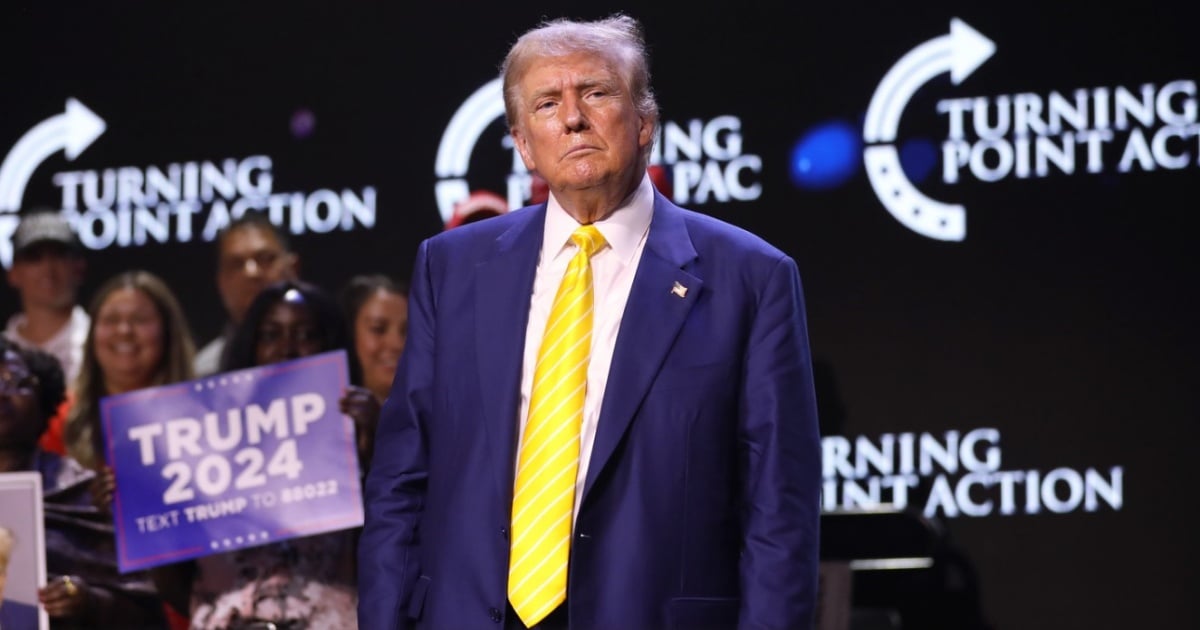
The elected president of the United States, Donald Trump, warned this Saturday that he could impose tariffs of 100% on BRICS nations if they take measures to weaken the U.S. dollar.
The BRICS alliance includes Brazil, Russia, India, China, South Africa, Egypt, Ethiopia, Iran, and the United Arab Emirates, although in October they accepted the incorporation of 13 new member states as associates, including Cuba.
Despite the fact that the dollar remains the dominant currency in global trade, accounting for approximately 58% of foreign exchange reserves—according to IMF data cited by the Associated Press—the BRICS bloc has sought to reduce its dependence on this currency through a process known as dedollarization.
This strategy aims to increase the use of other currencies in international trade, taking advantage of the growing economic influence of that group.
In a post on Truth Social, Trump stated on Saturday that the United States demands assurances from BRICS countries that they will not create a new currency or support alternatives that could replace the dollar.
"Otherwise, they will face tariffs of 100% and should forget about accessing our wonderful economy," he affirmed.
Trump asserted that there is "no possibility" of BRICS replacing the dollar in global trade, warning that any such attempt would "close the doors of the United States" to the nations involved.
Analysts, however, believe that the dollar's dominance is not at risk in the short or medium term.
A model from the Atlantic Council confirms that the US dollar remains secure as the primary global reserve currency.
The dominance of the dollar has been criticized by leaders such as Russian President Vladimir Putin, who has described the use of the dollar as a sanction tool as a "strategic mistake."
Putin has promoted the establishment of an alternative payment system to the SWIFT network to bypass sanctions and facilitate trade with his allies.
Trump issued these threats after announcing similar tariff measures against Mexico, Canada, and China.
In response, leaders such as Claudia Sheinbaum and Justin Trudeau have sought to negotiate in order to prevent an escalation in trade tensions.
What is BRICS?
BRICS is an association, group, and political and economic forum composed of emerging countries. Initially formed by Brazil, Russia, India, China, and South Africa, it was established in 2010 following South Africa's entry into what was then known as BRIC.
As of January 1, 2024, Egypt, the United Arab Emirates, Ethiopia, and Iran joined as full members, following the announcement made at the XV Summit held in Johannesburg, South Africa, in August 2023.
In October of this year, during the XVI Summit held in Kazan, Russia, BRICS accepted the incorporation of 13 new member states as associates, including Cuba. The other associates are Algeria, Belarus, Bolivia, Indonesia, Kazakhstan, Malaysia, Nigeria, Thailand, Turkey, Uganda, Uzbekistan, and Vietnam.
With this expansion, BRICS has established itself as an alternative international space to the G7, which comprises developed economies.
Together, the BRICS countries account for nearly 37% of the global GDP and 46% of the world's population. Despite these impressive figures, the bloc faces internal challenges, including conflicts of interest among its major economies, particularly China, which has raised concerns about its cohesion and economic outlook.
Frequently Asked Questions about Trump's Threat to BRICS Countries and De-dollarization
What measures does Trump plan to implement against BRICS countries?
Donald Trump has warned that he could impose a 100% tariff on BRICS nations if they take steps to weaken the US dollar.
What is dedollarization and why is it relevant for BRICS?
Dedollarization is a strategy aimed at reducing dependence on the dollar in international trade by promoting the use of other currencies.
What impact does Trump's tariff policy have on the international relations of the United States?
Trump's tariff policy, which includes high tariffs on countries like Mexico, Canada, and China, is causing trade and diplomatic tensions.
What challenges does Cuba face in becoming a full member of BRICS?
The country must demonstrate its ability to attract investments and adapt to the governance standards of the bloc. Full membership would require economic and political commitments that are currently beyond Cuba's reach due to its internal issues.
Filed under: